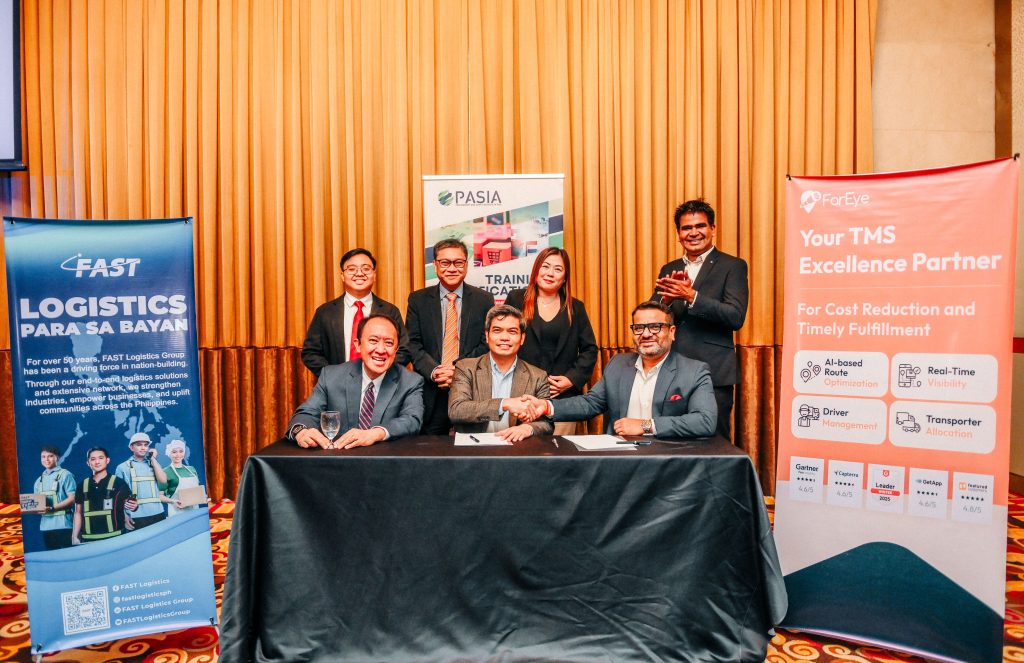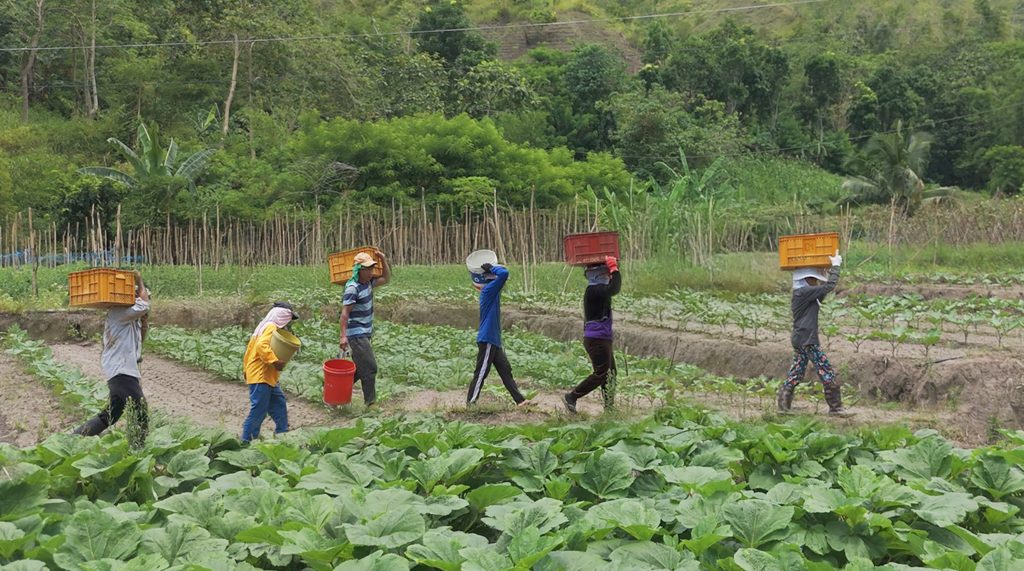
FAST Logistics Group, the country’s leading logistics provider, explores the challenges in agro-logistics in the Philippines and offers potential solutions to overcome them.
Agro-logistics, which refers to the efficient transport, storage, and handling of agricultural products, is critical to ensuring nutritious food reaches Filipino households across our archipelago. It encompasses warehousing, transportation, cold chain infrastructure, and order fulfillment, requiring a whole-of-society approach and coordinated efforts from the government, private sector, and communities.
Agriculture in the Philippine Economy
Agriculture remains a pillar of the Philippine economy, contributing nearly 9% to gross domestic product (GDP) and employing about 20% of the country’s workforce. While its share of GDP has gradually declined as the industrial and services sectors expanded, it continues to play a vital role in food security, rural development, and livelihood generation.
Despite the country’s reliance on fertile lands and abundant natural resources, self-sufficiency in staple crops such as rice remains elusive. The Philippines is projected to remain the world’s top rice importer through at least 2026, with imports expected to reach 5.5 million metric tons (MT). This dependence underscores structural gaps in local production and supply chain efficiency.
Post-harvest losses due to inadequate logistics are another major drag on productivity. The Department of Agriculture estimates that poor logistics can lead to the loss of up to 30% of produce, especially for vegetables and high-value crops — an inefficiency that also inflates prices by an estimated 10% to 15%. Addressing these issues requires rethinking how agricultural goods move from farms to markets.
Take a closer look at the challenges and opportunities in agro-logistics and explore how the Philippines can better connect farms to markets to put quality, affordable food on every Filipino table.
Challenges in Philippine Agro-Logistics
Some of the challenges are the following.
Geographic and Infrastructure Constraints
With more than 7,000 islands, the Philippines faces unique transportation challenges. Moving produce from farm to market often requires multiple modes of transport, such as inland trucking, RoRo (roll-on/roll-off), sea, and air, which increases costs compared to landlocked countries. Limited farm-to-market roads and the concentration of cold storage facilities in urban centers exacerbate the problem, leaving many rural producers disconnected from major markets.
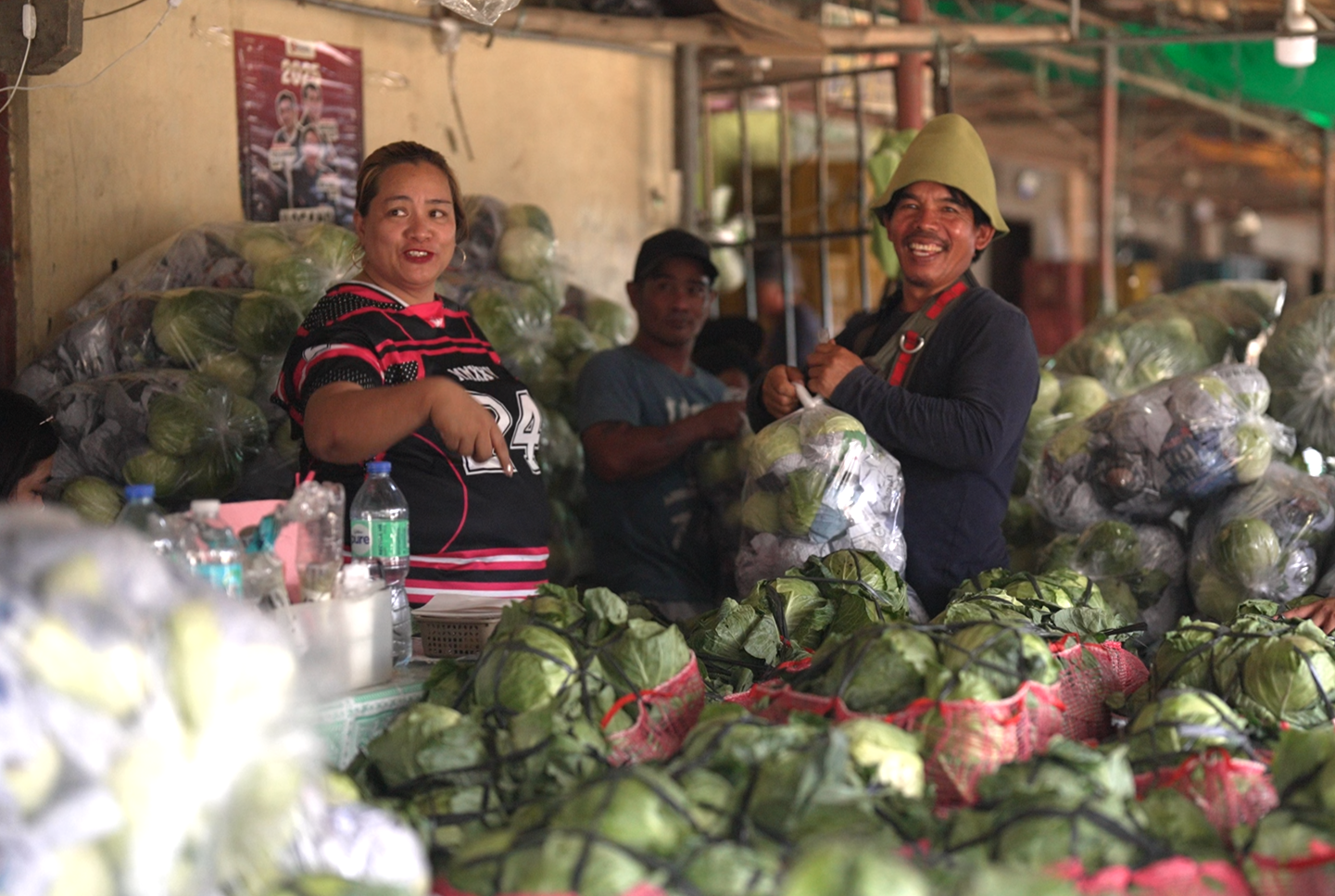
Post-Harvest Losses
Losses erode farmers’ incomes, reduce market supply, and increase consumer prices. In the rice production process alone, total losses reach around 14.5%, particularly during drying and milling. For high-value crops, the problem is more severe: vegetables suffer up to 42% losses, fruits up to 28%, with pineapples at 30% to 40% and bananas as high as 35%. Corn losses range from 3% to 25%, mostly during drying and storage. Case studies further illustrate the scale of the issue: mangoes traveling from Iloilo to Manila can lose 33.9% of their volume, while onions from Nueva Ecija to Divisoria lose as much as 45%.
In addition, a Japan International Cooperation Agency (JICA) report noted that farmers without access to drying yards resort to drying paddy on roadsides. Passing vehicles scatter and crush grains, while exposure to rainfall or contamination reduces quality and quantity.
Heavy Traffic and Road Congestion
Agro-logistics also suffers from traffic congestion. Traffic congestion costs the economy ₱3.5 billion per day or ₱1.27 trillion per year due to lost productivity, higher fuel costs, and faster vehicle depreciation. For agro-logistics, these delays directly impact freshness, shelf life, and operational costs.
Climate and Disaster Risks
The Philippines is highly vulnerable to climate change. Typhoons, floods, and droughts regularly disrupt harvests and supply chains. Government data shows that recent typhoons caused ₱1.12 billion in agricultural damage and impacted rice farms across 41,000 hectares. Studies also pointed out the dangers of rising temperatures. A 1°C increase in nighttime temperature can reduce crop yields by up to 10%. Such risks compound existing bottlenecks, threatening both supply stability and farmer livelihoods.
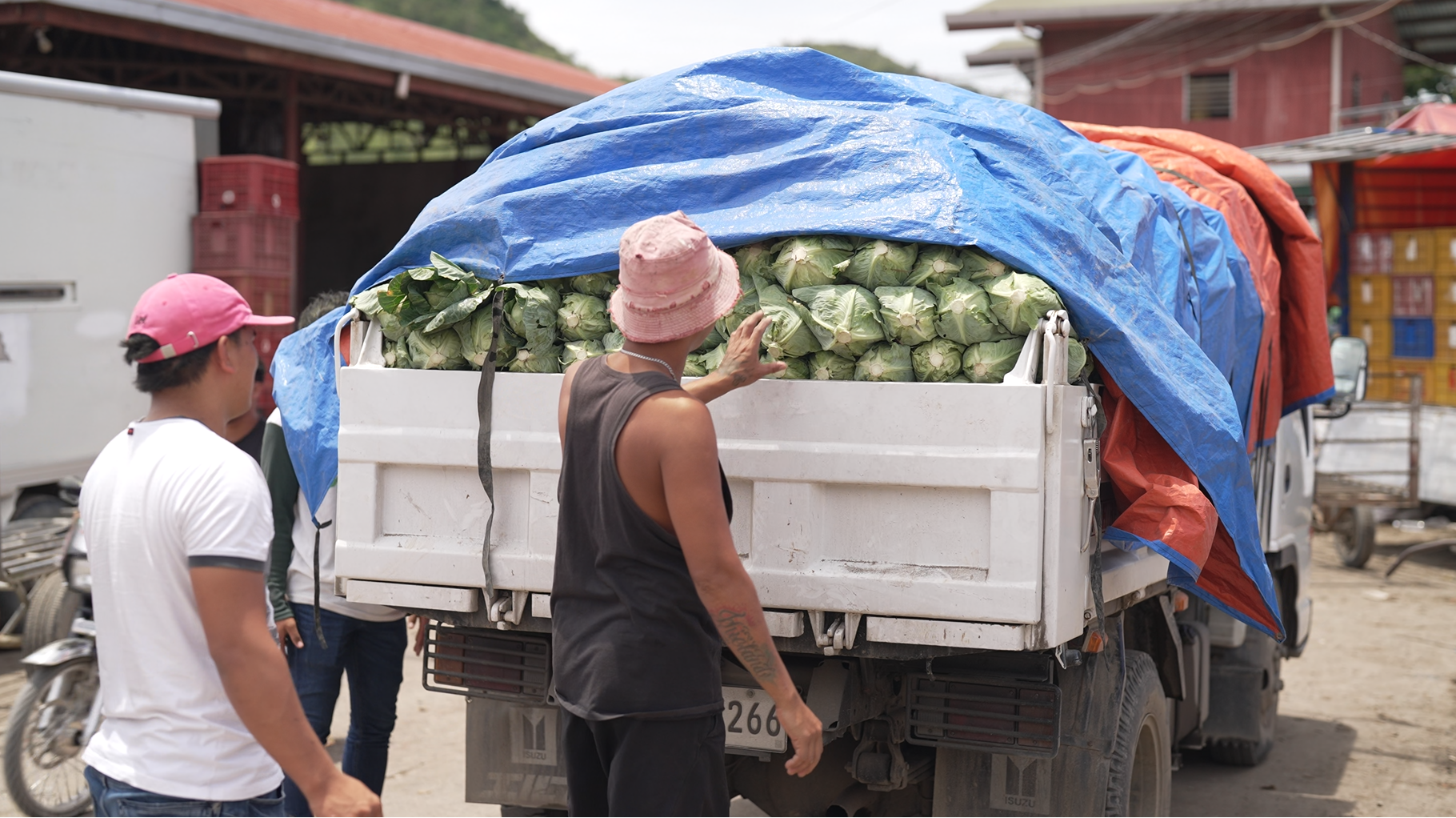
Dependence on Intermediaries or Middlemen
Farmers often depend on middlemen to bring their produce to markets, leaving them with thinner margins and little negotiating power. While intermediaries play a role in bridging geographic and logistical gaps, their dominance often results in distorted farmgate-to-retail price differences, with consumers paying more while farmers earn less.
Fragmented Supply Chain
The Philippine agro-logistics landscape is fragmented, with limited integration among farmers, cooperatives, logistics providers, and retailers. This lack of coordination prevents economies of scale and creates inefficiencies across the value chain. Many logistics providers also lack the specialized infrastructure or expertise to serve smallholder farmers effectively, leaving gaps that contribute to high waste and uneven distribution.
Opportunities in Philippine Agro-Logistics
Solutions that can help overcome the said challenges and improve the agro-logistics sector’s overall efficiency and sustainability. Some of them are:
Government Investments
The Philippines’ Department of Agriculture established the Agricultural and Fisheries Logistics Office and allocated a ₱3 billion budget to construct 99 cold storage facilities nationwide, including modular units with 7–15 MT capacity and large facilities with up to 3,500 pallet positions. These projects aim to expand cold chain coverage, reduce post-harvest losses, and ensure a stable food supply. As the government increases its investments, agro-logistics infrastructure will be strengthened and open new opportunities for farmers in the provinces.
Public-Private Partnerships
Collaboration with private logistics providers is equally critical. While government projects provide the backbone, private sector investments in transport fleets, regional food hubs, and modern cold chain facilities can help bridge the urban-rural divide and accelerate inclusive growth. A notable initiative is the Clark National Food Hub, expected to become the Philippines’ largest agro-logistics facility by 2027. Through this facility, the government seeks to streamline food distribution, reduce dependence on intermediaries, and strengthen the Philippines’ position in regional agri-trade by opening direct export pathways across Asia-Pacific.
Direct Procurement and Contract Farming
Shifting toward direct procurement and contract farming allows farmers to bypass multiple intermediaries and secure stable buyers. It also empowered farmers to negotiate predictable prices based on their production costs. This model not only boosts farmer income but also gives retailers and supermarkets access to consistent supplies of fresh, affordable produce.
FAST Logistics Group launched a community-based Logistics Support Kiosk in Aritao, Nueva Vizcaya aimed at helping farmers and micro-entrepreneurs improve market access. Located at OTOP Store Aritao, the kiosk serves as a consolidation hub where products are dropped off for transport to major markets like Metro Manila.
Strengthening and Capacity-Building for Cooperatives
Empowering cooperatives is another key opportunity in agro-logistics. Farmers gain collective bargaining power and shared access to logistics facilities when government-led infrastructure is integrated within cooperative-led operations. Organized farmers’ cooperatives also mean that they have a consistent seat in policy-making and other important discussions. This fosters both accountability and sustainability in the supply chain.
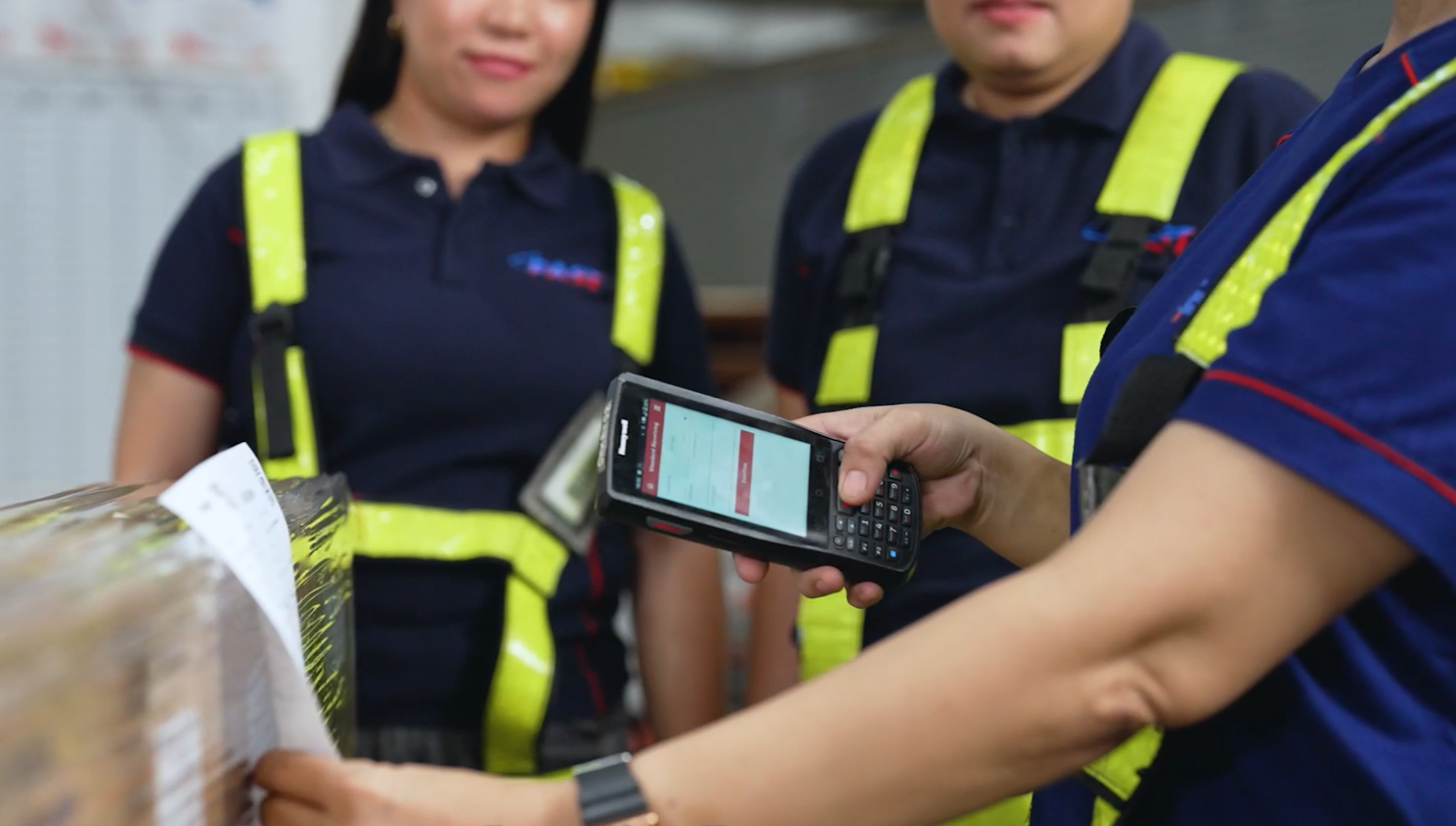
Digital Solutions and Modernization
Investments in digital solutions will usher Philippine agro-logistics and food distribution into a smarter, more efficient era. Warehouse Management Systems (WMS) and Transport Management Systems (TMS) can automate operations and optimize every step of the value chain. Using temperature sensors and real-time tracking tools in ColdChain solutions also ensures product integrity.
At the same time, these efforts should be complemented by modernized, science-based farming techniques, including precision agriculture, planned crop cycles, and better post-harvest handling practices to reduce losses and improve yields. Equally important is making modern farming equipment and tools accessible to smallholder farmers.
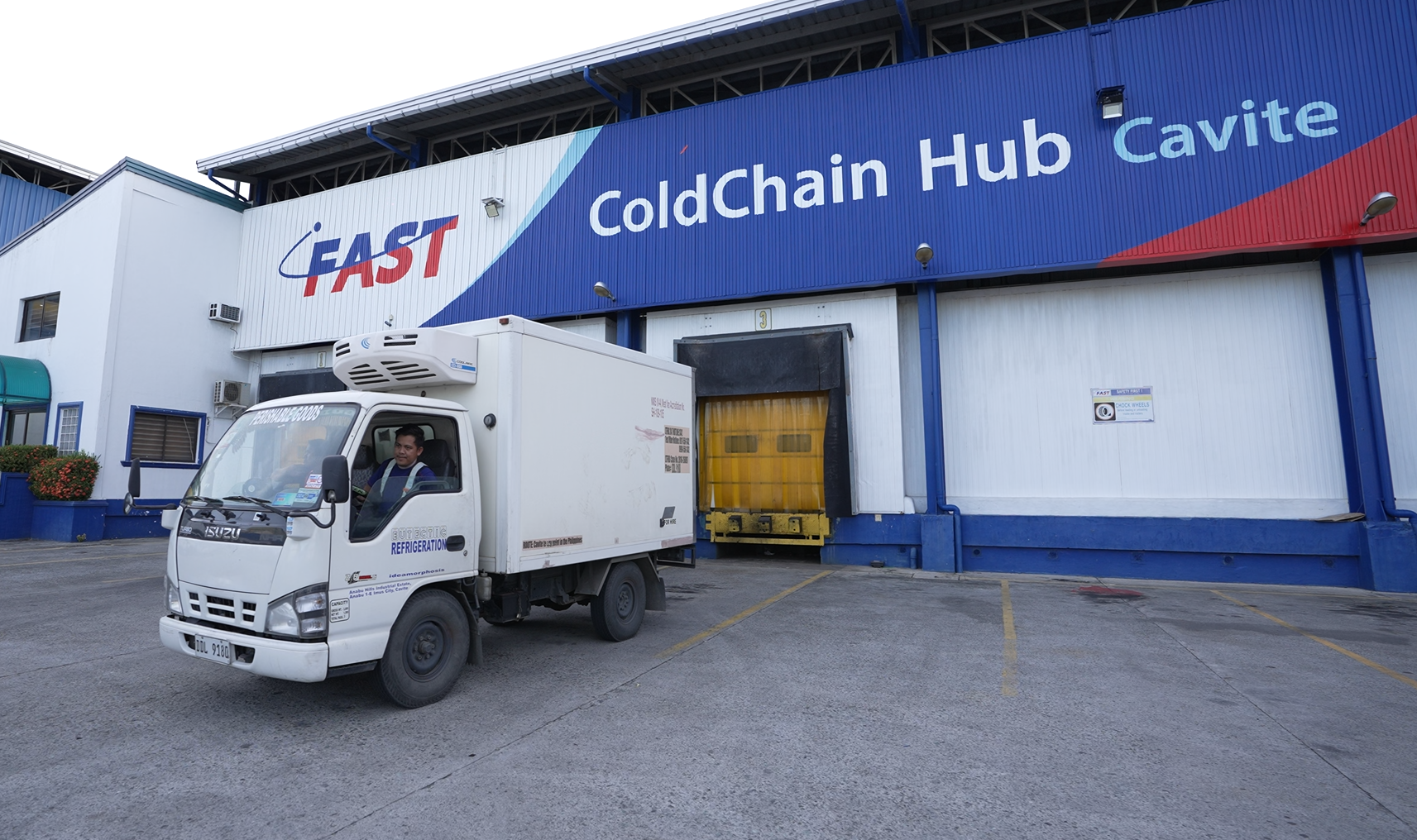
Adoption of Sustainable Logistics Solutions
Sustainability must be embedded in agro-logistics. Energy-efficient or solar-powered cold storage systems reduce operational costs while cutting carbon emissions. These innovations align with broader climate-smart agriculture goals, ensuring that food security initiatives are resilient and environmentally responsible.
Agro-logistics underpins food security in the Philippines. The Philippines can bolster the supply resilience and farmer profitability by leveraging opportunities and addressing challenges in agro-logistics.
Agro-Logistics Solutions of FAST Logistics Group
FAST has been serving the needs of agricultural companies with end-to-end logistics solutions, spanning warehousing, transport, Intelligent ColdChain solutions, and value-added services. By providing integrated solutions, FAST helps producers ensure that farm produce reaches markets in optimal condition.
It also strengthens partnerships with government agencies, farmers’ groups, and private enterprises in agri-producing provinces to bring their harvests directly to supermarkets and retailers. With its wide transport network, the largest in the Philippines, as well as its expertise in bringing essential goods anywhere in the archipelago, FAST connects agri-producers straight to markets. Through this model, farmers gain access to competitive farmgate prices while retailers benefit from lower procurement costs.
With over 50 years of industry leadership, FAST is the leading provider of end-to-end logistics solutions in the Philippines. Connect with our Solutions Expert to learn more
Categories
-

FAST Ahead
Includes case studies and testimonials of our partners as well as other featurettes from industry experts
-

FAST Hacks
We simplify logistics terms and provide practical tips and solutions for the DIY in you
-

FAST Highlights
Know more about our history, various brands, achievements, and news updates
-

FAST Moments
Get to know the people of FAST, our employee programs, as well as our various ways of giving back to the community
-
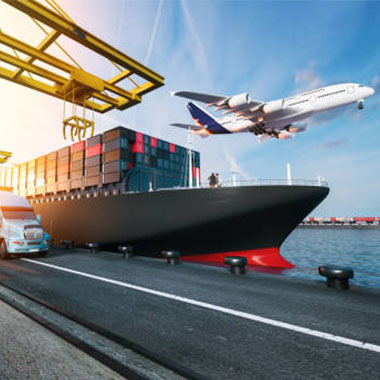
FAST Solutions
Learn more about the various logistics solutions that we cater to and offer our clients, as well as tech innovations, and service facilities
